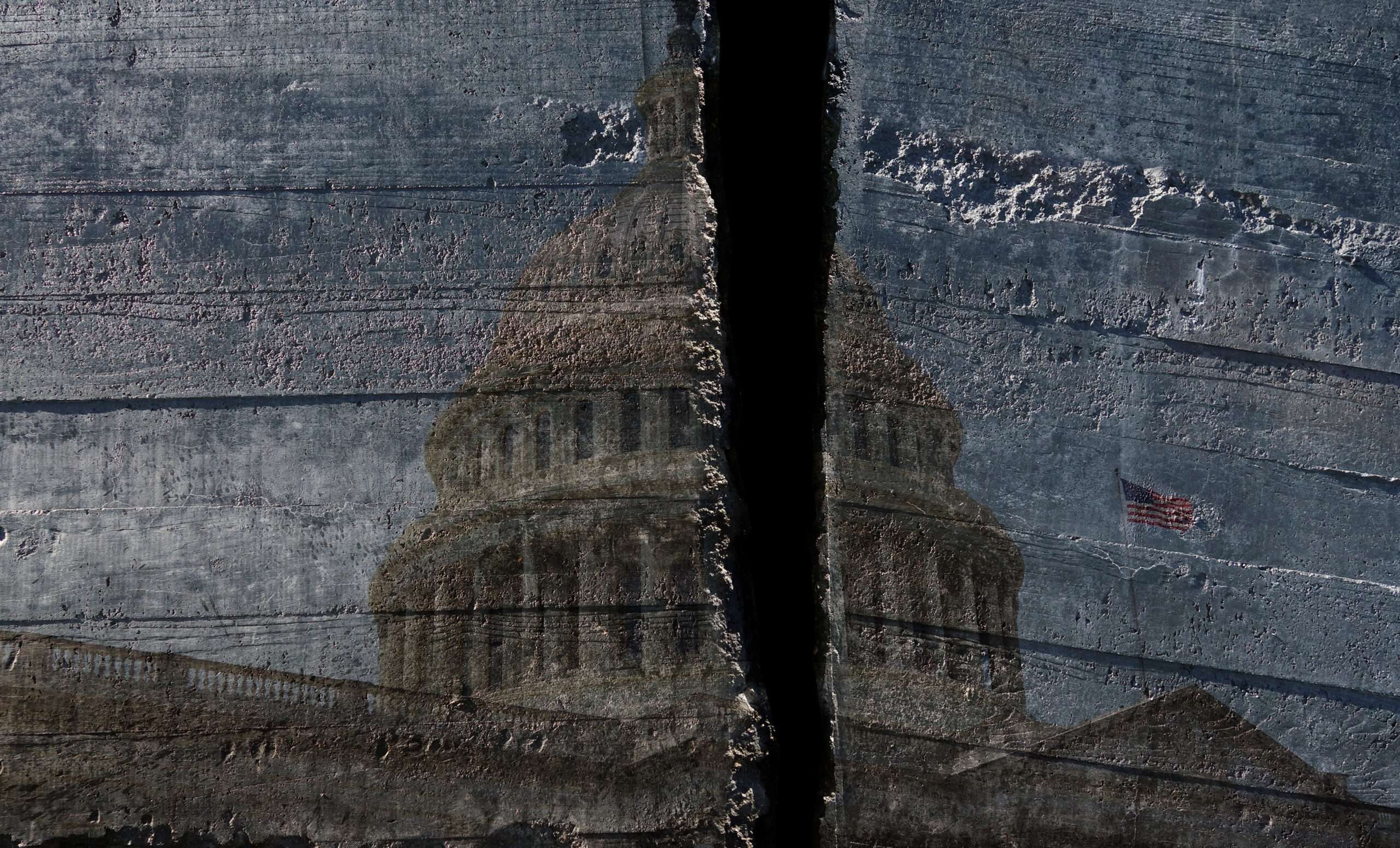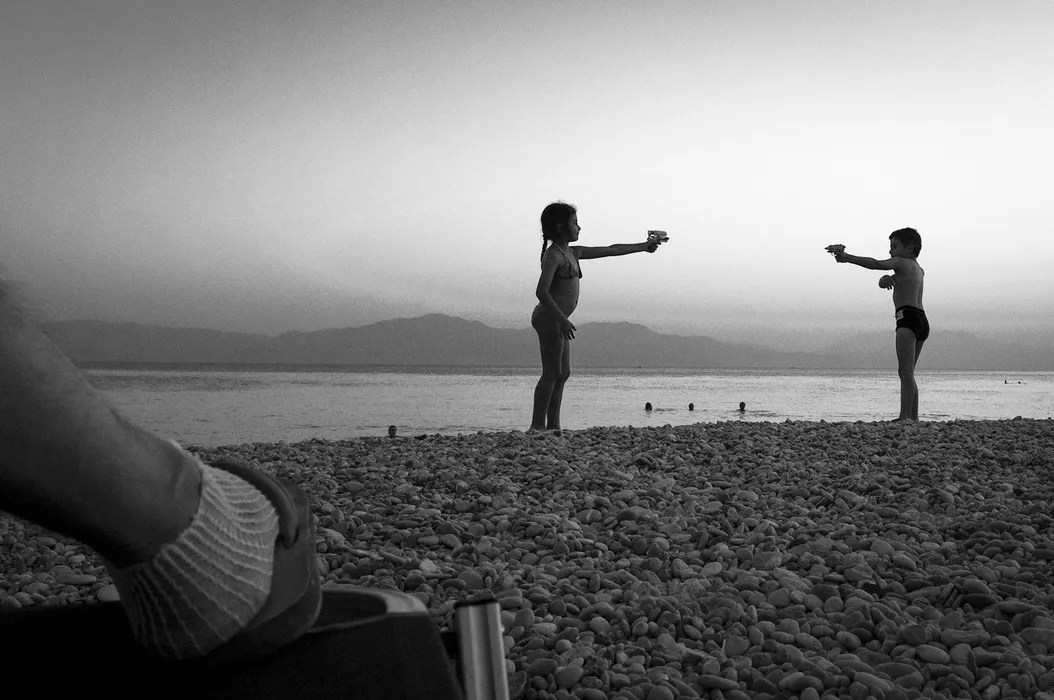The New World Order is poisoning us with fluoride. Hillary Clinton is running a paedophile ring from a Washington pizzeria. And America’s deadliest school shooting was an elaborate hoax.
These are all views advanced by Alex Jones, a far-right conspiracy theorist, over his 28-year career. Unhinged! Insane! Disgraceful! Right?
But: Jones is a leading influential media figure in the US. He has one of the most successful and popular platforms of the internet age. And now there’s a new documentary out which covers him, called Alex's War. It's done by an award-winning independent filmmaker. And it offers a fly-on-the-wall look at Jones and his media empire.
And apparently you’re not supposed to watch it! Google, YouTube, TikTok, Facebook and Instagram have banned all promotion of the film. And it’s not even out yet — the documentary premieres this weekend.
OK, I disagree with Alex Jones on most things. I find him hard to listen to, and irritating to watch. And many of his theories are just nuts.
But as an activist citizen based in Europe, a political consultant to groups who challenge power, I'm keen to watch this documentary.
And I think you should be, too. Here’s why:
1. The market
The popularity of figures like Jones says something unique about his audience. And you want to persuade many of these same people, or a similar group.
The problem is that when someone spreads controversial ideas that stick, we only look at the supply side. Is this person wrong on the facts? Are they spouting “disinformation”? Are they spreading hate… are they a bigot?1
And we conveniently ignore the demand side. We don’t look seriously at the issue of why there's an appetite for these views in the first place. We pretend the other half of the information transaction doesn’t exist. At our peril.
From what I know of Jones, it seems he became popular partly because he spoke to the rage that people felt, towards a system that wasn’t working for them. Like Trump, like the Vote Leave campaign in the UK. But also, like an increasing number of influencers across the political spectrum.
In the US, trust in institutions has been steadily declining, and is now at an all-time low. How much could this have factored into Jones' rise? Are there other reasons his extreme views get so much traction?2
These are the kinds of questions I'd hope the documentary could answer.

2. The product
Noam Chomsky once explained how those in power keep a lock on the information ecosystem:
[they] strictly limit the spectrum of acceptable opinion, but allow very lively debate within that spectrum
We’re living in a time when the scope of acceptable opinion is getting narrower. As trust in the system collapses, as people become more unruly, the establishment reacts in the only way it knows: with brute force. Accept their narrative or you’re an idiot, a racist, a bigot. And deserving of ostracism.
Jones has built a successful media empire opposing the establishment. Since he was a wacky figure, he was among the first to be banned outright — social media platforms kicked him off in 2018. But today there's an increasing number of calls for much less controversial people – commentators who could hardly be called 'fringe' – to get the same treatment. Cases in point: Russell Brand. Joe Rogan. Or many of the journalists moving to Substack who no longer feel comfortable expressing their views in legacy outlets.
I hope the documentary can deconstruct Jones' media product. How did he build it? What were the cultural moments where he saw a chance to boost his support, and how did he exploit them? How did he keep his platform going after the social media giants banned him? Have the constant establishment attacks helped or hindered him?
And the detail: What does his working day look like? Which tools does he use? Does he resist or embrace audience capture?
As the establishment limits further and further the scope of acceptable opinion, I hope there will be lessons in Alex Jones' story on how to deal with it. Because you're gonna need it.
3. The cultural phenomenon

You may despise his views, but you can’t deny that Jones is culturally significant.
He played a key role in the rise of the MAGA movement, and helped bring Trump to power. He has made a significant contribution to the polarisation of American discourse. And if the US stays on the current path, we could see a swing to the right in Congress, and a return of Trump in 2024. I'm sure Jones will be right in the centre of it.
Cultural shifts affect the politics of tomorrow. The US dominates global culture, and exports it via social media. Many trends we see in the US eventually make their way over here to Europe.
So it's not a stretch to imagine that we could see similar dynamics playing out here. Should we be preparing for figures like Jones and Trump to emerge in Europe... or have they already arrived? I hope the documentary will shed light on that.
4. The personal story
Everyone is interested in people with extreme stories. But in particular, I'd like to know: does Jones really believe all he says? Or is it an act? What gives him his drive, his worldview? How does he handle being so hated?
Alex Jones absolutely losing his shit because he got the wrong sort of fries (they brought hom curly fries)
— Will Black (@WillBlackWriter) July 18, 2022
Anyone who listens to the political drivel of this narcissistic imbecile deserves to end up in some dystopic society run by idiots pic.twitter.com/ryWXSG0Q5i
5. And just for the hell of it...
When our institutions ridicule someone’s ideas... when they band together and bark “move along! nothing to see here!”... when they actively censor or suppress something… when they turn watching a fucking documentary into a subversive act…
Well, call me petty, but it makes me want to do the opposite. Even if the documentary doesn't meet my expectations, I'll enjoy watching it. Because they tried to bully me into ignoring it.
And apparently I’m not alone. As of writing, Alex's War has surged to number 2 on the iTunes pre-order chart, apparently by word-of-mouth.
The Streisand effect is real. The establishment, as authoritarian and incompetent as it is, cannot contend with it.

Learnings
Maybe the documentary will answer these questions for me. Or maybe I’ll be left wanting.
But still, just the experience of thinking about it has been instructive. And I've realised this isn't really about Alex Jones at all. It's about why you should expose yourself to views and people you might dislike. In an effort to better understand those you seek to persuade.
Allow me to finish, then, with some general predictions:
The activist citizens who will own the future are curious and open-minded. They are keen to understand what works to achieve their goals.
They don’t let their emotions blur their judgment. They question everything, but have a bias for action. They don’t take themselves too seriously.
They frustrate many, because they’re hard to define. But they're fine with it, because they don’t need to be part of a tribe.
They know that the more desperate the establishment gets, the more they turn to brute force. So these activist citizens respond with subtlety, with surprise. With devastating precision.
They know the world is more complex than good-vs-evil.
They know that giving attention to something doesn’t mean endorsing it. That holding a dangerous view to the light doesn't mean adopting it.
And that often, the most valuable information is where everyone is telling you not to look.
* * *
Notes
1: And so the solution seems logical: silence them, shut them down, deplatform them. Turn off the toxic tap! Except doing so is counterproductive.
2: I can’t — won’t — accept at face value the explanation that some people believe such theories because they’re dumb, or evil, or racist, or crazy. Because that seductively simple understanding of human nature feels wrong to me. And because with it, the establishment have led us down dark paths – both intentionally and accidentally.



